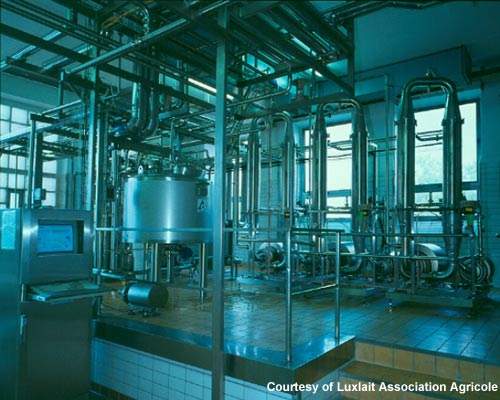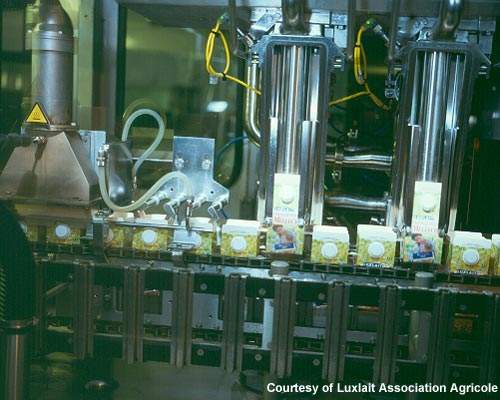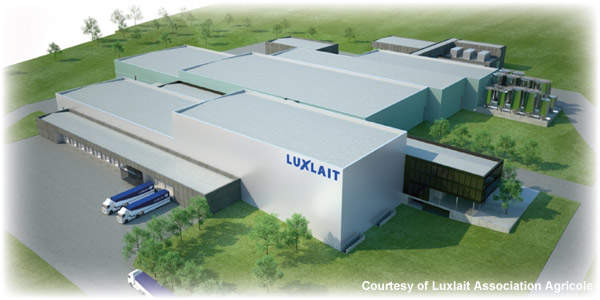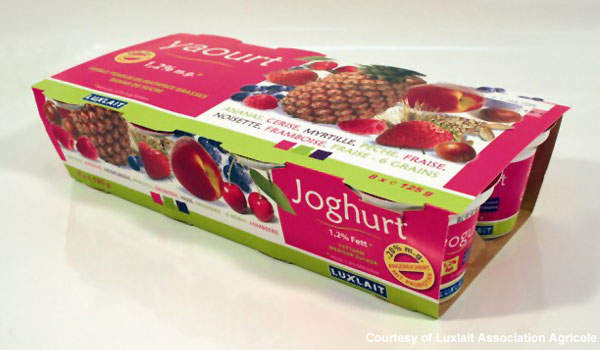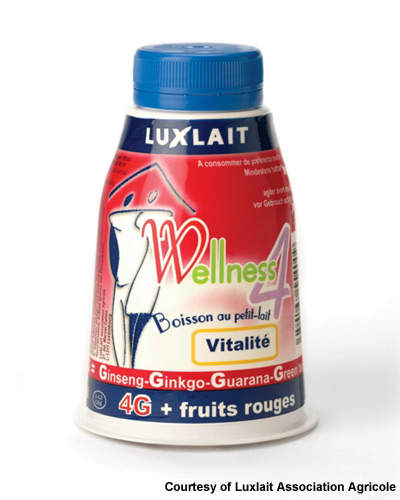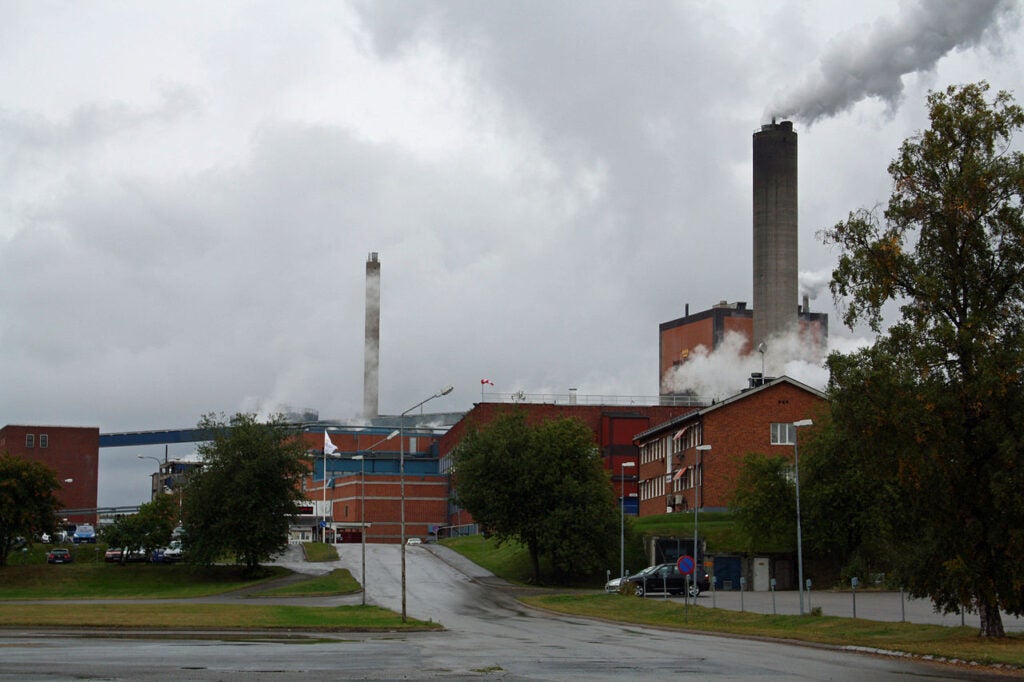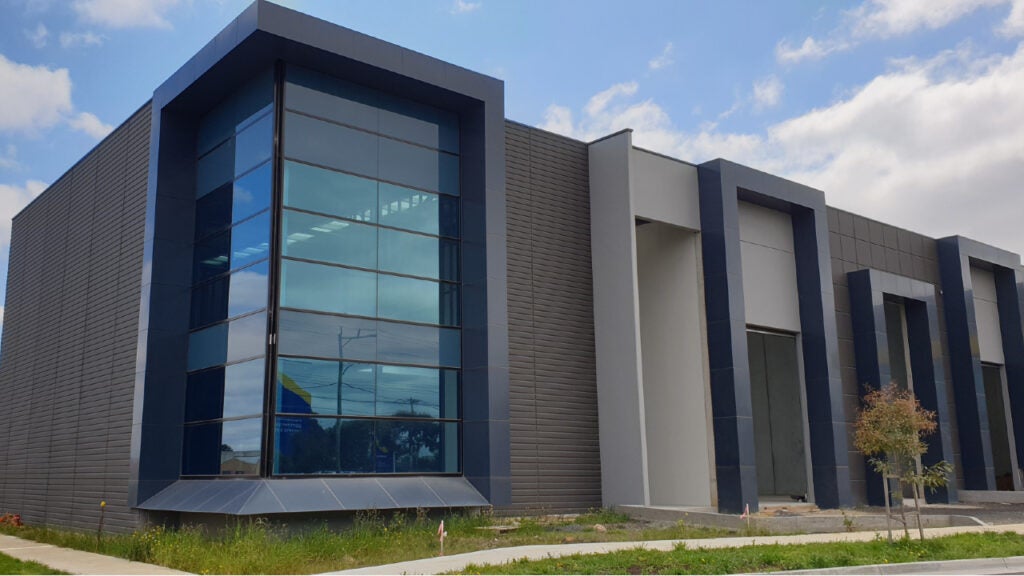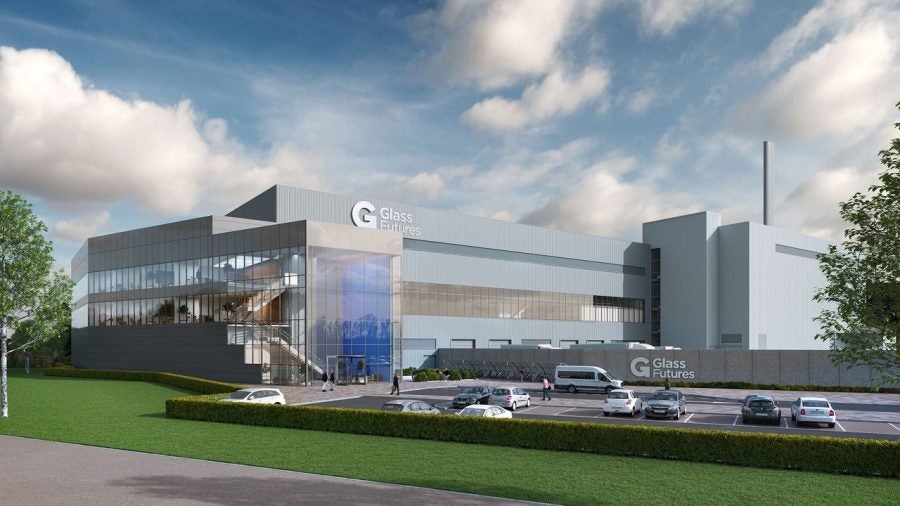Luxlait (Luxlait Association Agricole) is one of the largest dairy companies in Luxembourg. It is a dairy collective serving Luxembourg dairy farmers and its origins go back to 1894. The company has a turnover of over €60m per year and processes over 118 million kg of milk every year at its current site at Merl.
In March 2007 Luxlait announced a project to construct and outfit a new ‘super dairy’ at Roost near Bissen. The new dairy was officially opened in January 2010 after two years of construction.
The new facility will help increase processing / production capacity and support Luxlait’s growing business, while introducing new state-of-the-art green technology. The new plant required a total investment of €100m, and was developed by a partnership between Luxlait and Tetra Pak Processing Systems.
The project
The new plant has a design capacity for an intake of 120 million litres of raw milk per year.
It was designed to save energy and to reduce waste products to a minimum. The new plant was built with an objective to include a minimum reduction of 38% in water usage and also a reduction of 25% in use of fossil fuel; as greener and healthier products are required by consumers. All waste water is carefully treated and ‘polished’ before it is released back into the environment.
In November 2007 Luxlait contracted Tetra Pak for the processing systems and the outfitting of the new plant; also to provide future support for the dairy.
The new plant incorporates a number of Tetra Pak dairy processing systems that cover operations ranging from the raw milk intake to the final package filling which includes a high-level automation solution based on the Tetra PlantMaster system.
Tetra PlantMaster is a modular plant automation solution based on open industry standards and Tetra Pak experience. The software can integrate controls all over the plant to save energy and can also provide full batch traceability by tracking and recording production data.
Ron De Keersmaeker commented: “The combination of advanced information technology and comprehensive application knowledge in Tetra PlantMaster enables a high degree of functionality, future scalability, customisation and secures full traceability.
“The plant will not exclusively use Tetra Pak products in its construction – there will be wide consultation as to the best options.”
The new facility
The dairy project management contract was awarded to Paul Wurth Civil Engineers of Luxembourg. The plant consists of a main dairy building along with reception, treatment and logistics areas as well as primary energy facility, water pre-treatment plant and administration buildings. The total floor space of the buildings is 35,000m².
The dairy is expected to have an operational life of between 20 and 30 years and has been designed so that it can adopt new technologies as they become available.
The dairy will concentrate on milk processing and the manufacture of products such as pasteurised and UHT milk, yoghurt, cream, buttermilk, dairy-based desserts and yoghurt health drinks. Products will vary according to the season.
Tetra PlantMaster technology
Tetra PlantMaster is a modular plant automation solution based on open industry standards and Tetra Pak experience. It is used in dairies to collate and interpret the process data in a simple manner and is based on ABB, Allen-Bradley or Siemens hardware.
The software can integrate controls all over the plant to save energy. It enables material movement traceability throughout the production process and can generate batch reports. Data related to quality assurance of the products can be linked to laboratory information management systems.
The technology also allows online tracking of equipment performance and processing of food products. It has a scalable design that simplifies the future extensions and maintenance.

